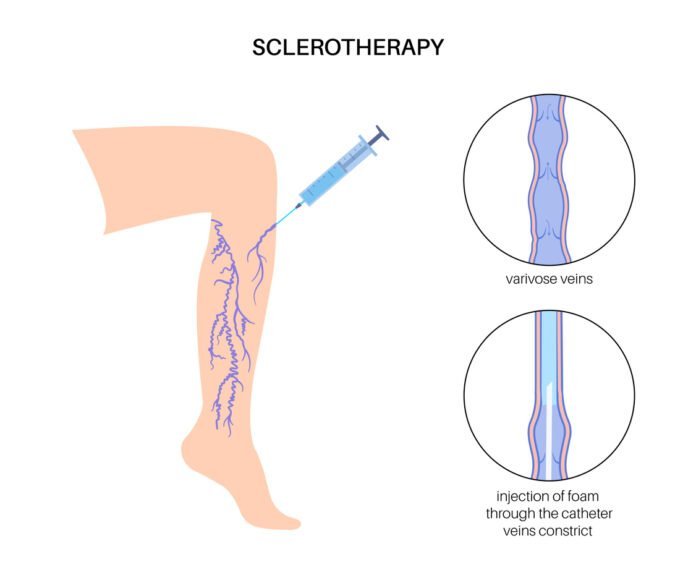Sclerotherapy is a minimally invasive treatment designed to eliminate varicose and spider veins. The procedure involves injecting a sclerosing solution directly into the vein, causing it to collapse and eventually fade from view. While the process is widely regarded as safe and effective, it leaves many wondering when is the appropriate or optimal time to seek this treatment.
There are a variety of factors to consider that can help you determine whether sclerotherapy is the right option for you.
Firstly, one has to consider the medical necessity. Varicose and spider veins are often perceived as merely a cosmetic issue, but they can also lead to serious health issues if left untreated. If you are experiencing symptoms like aching, heaviness, or swelling in your legs, these could be indications that your varicose veins are more than a superficial concern. Additional symptoms warranting medical attention include cramping, throbbing, burning, and itching around the affected veins. In such cases, seeking medical consultation is advisable. A healthcare provider can assess whether sclerotherapy is appropriate for treating your symptoms from a medical standpoint.
Another factor to consider is the impact on quality of life. For many, varicose veins and spider veins are more than just an aesthetic issue; they can erode self-esteem and cause constant discomfort. If the visibility of these veins is affecting your daily interactions or mental well-being, it is a sign that you may be a candidate for sclerotherapy. Improved appearance often leads to enhanced self-confidence and overall quality of life, making the procedure worth considering.
Next, think about the timing of the treatment considering your lifestyle and commitments. Sclerotherapy is minimally invasive, but it does require some downtime for recovery. Typically, patients need to wear compression stockings for several days to weeks post-procedure, and may need to avoid strenuous activities for a short period. If your schedule is currently packed with commitments that would make this recovery phase challenging, it might be better to delay the treatment until a more convenient time arrives. For example, someone preparing for an athletic event or an extended trip might elect to wait until after these activities.
The season in which you’re planning the treatment can also play a role. Many find it more convenient to undergo sclerotherapy during the cooler months. Wearing compression stockings in hot weather can be uncomfortable, making fall and winter more favorable seasons for the procedure. Additionally, cooler weather can make it easier to cover up any minor bruises or marks that may occur during the healing process.
Financial considerations are also essential when planning for sclerotherapy. While many insurance plans cover sclerotherapy when it is deemed medically necessary, cosmetic treatments are generally not covered. Therefore, understanding your coverage and out-of-pocket costs beforehand is crucial. This knowledge allows you to budget effectively and potentially seek out financing options to make the treatment more affordable.
Moreover, it is crucial to ensure you are a good candidate for the procedure. People with certain medical conditions, such as deep vein thrombosis or certain types of systemic diseases, may not be suitable candidates for sclerotherapy. If you have a history of blood clots, heart disease, or any other significant health issues, it is vital to discuss these with your healthcare provider. They can run the necessary diagnostic tests and provide guidance on whether sclerotherapy is a safe option for you.
Special circumstances, such as pregnancy or breastfeeding, are also important considerations. Sclerotherapy is generally not recommended for pregnant or breastfeeding women due to the potential unknown effects on the baby. If you fall into this category, it may be better to wait until you are no longer pregnant or breastfeeding.
Ultimately, the decision to seek sclerotherapy is a personal choice and should be made in consultation with a healthcare provider. A thorough medical evaluation will help determine if it is the most appropriate treatment for your specific situation. If the procedure can improve your symptoms or quality of life, and you are a good candidate, sclerotherapy could be a beneficial and life-enhancing treatment option. Consulting with a qualified specialist will allow you to receive personalized advice, ensuring that you make an informed and confident decision about your health and well-being.


